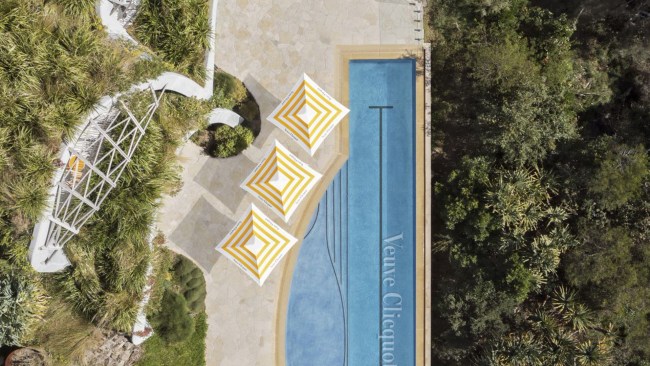Home sweet home
INSTEAD of a hotel in southern India, try a family-run guesthouse.

THERE's nothing as instantly involving as a home stay. In the best examples, the hosts provide guests with space and privacy, but there is an implicit invitation to become a temporary member of the household if you should so desire.
At Kottukapally House (or Nazarani Tharavad) in Kerala, southern India, you'd be a fool for not joining in.
Hosts Thressi and John Thomas Kottukapally (who take Thomas as the family name) are Nazaranis, or Syrian Christians, a minority community in this tropical state but a vocal and engaged assembly who, in particular, work hard to keep their culinary traditions alive and thriving.
Thressi is the author of a popular cookbook, Syrian Christian Favourites, which contains about 30 recipes, and she runs a tight kitchen in a substantial 46-year-old two-storey house in the town of Pala, southeast of Kerala's seaside gateway city of Kochi and about 27km from Kottayam.
In the front garden stands a 300-year-old tharavad, or traditional southern Indian home with colonial Dutch and Portuguese flourishes, which Thressi delights in showing to guests, pointing out the ingenious number of split levels and the cool, dark hidey-holes for storing spices.
In the main residence, all is grand and airy, with Spanish-influenced archways, terrazzo floors, chandeliers, tall armoires, grandfather clocks, planter's chairs and intricately carved teak furniture. The Thomas family is a dynasty of plantation owners (they still own Kerala's largest rubber estate) and John's father was a member of independent India's first government, under Jawaharlal Nehru. They are a highly educated and articulate couple who delight in telling tales of the old plantation days. (John grimaces when he tells us that the communist state government confiscated the family's cashew plantation and rice fields in 1976.)
They happily show guests around the book-lined study, the back yard filled with spice bushes and fruit trees, and the reception rooms thick with the antiques Thressi collects with vigour.
There is a handful of large ensuite guest bedrooms, all airconditioned and with luxury touches; don't expect resort-style glamour but an eclectic mix of furniture and colours. Instead of a flat-screen television, enjoy a display of blue and white china hung on a wall, or photographs of Thressi and John's family and their travels, including a blessing at the Vatican. Thressi has turned silk sari lengths into swishing curtains, and there are plenty of fresh flowers in vases and bowls.
No alcohol is served and it's not the sort of accommodation to suit all travellers. But few could fail to be impressed by the food. At a long formal table in the pale blue dining room, friends and I sit for a banquet lunch, a 30-item Syrian Christian spread known as a Nazarani sadhya.
It's the sort of setting that instantly reminds me of a scene in Madhur Jaffrey's 2006 memoir of growing up in Delhi, Climbing the Mango Trees. She wrote how her extended family's dining-room table was so long that she and her siblings and cousins didn't know until years later that their grandmother was a vegetarian: they simply couldn't see what was being served to those at the top seats.
We settle in with our digestif of buttermilk enhanced with ginger, shallots, finely chopped curry leaves and salt. We are instructed to eat with our right hands from banana leaves folded at their narrowmost ends and neatly placed at each setting. Soon a parade of courses dished out by two servants starts to appear. First are small servings of finely sliced jackfruit chips, sweet lime pickle, carrot and tender coconut pickle, fried banana and coconut curry with the clear tang of mustard.
Then there is fried banana coated with jaggery, mutton stew scented with cloves and cinnamon, coconut and vinegar sambal, dried prawns, quail curry and a rice dessert made with coconut toddy syrup.
I can't recall all 30 courses or the exact order of serving. Which would put me in Thressi's bad books as she has been at pains to explain the exact succession of tastes, what mixes with which, the importance of each course relevant to the whole. It's a wonderful composition, with each taste a mere morsel assigned to its proper place on the banana leaf.
Thressi makes it all fun, too, with her ringing laugh and repartee with John, who is occasionally allowed to stop her in mid-flight and correct a date or snippet of information. I love her full-sail personality and her exhortations to eat, eat and be happy.
Pala is the seat of Christianity in Kerala and there are four churches in the precinct, including the nearby St Thomas Cathedral, built in the Portuguese style with laterite stone and lime mortar blended, in a definite local manner, with sugarcane jaggery, egg whites and fish extracts.
Visits to rubber, tea and vanilla plantations can be organised at minimal cost and Thressi also runs half-day cooking classes on request. Just be sure to save stomach space for a banana-leaf banquet or one of Thressi's Raj revival dinners, with shepherd's pie and custard-lashed puds.
Susan Kurosawa was a guest of Wildlife Safari, Singapore Airlines and Silk Air.
Checklist
The Thomases also offer a farm-stay at their 1930s colonial-style limewashed Teekoy Bungalow in the Kottayam district. Daily tariff is 14,750 rupees ($356) at Nazarani Tharavad or 6450 rupees at Teekoy Bungalow.
Both rates are for two people, twin-share, and include all meals. More: www.nazaranitharavad.com.
www.lwildlifesafari.com.au
www.singaporeair.com.au
www.silkair.com



